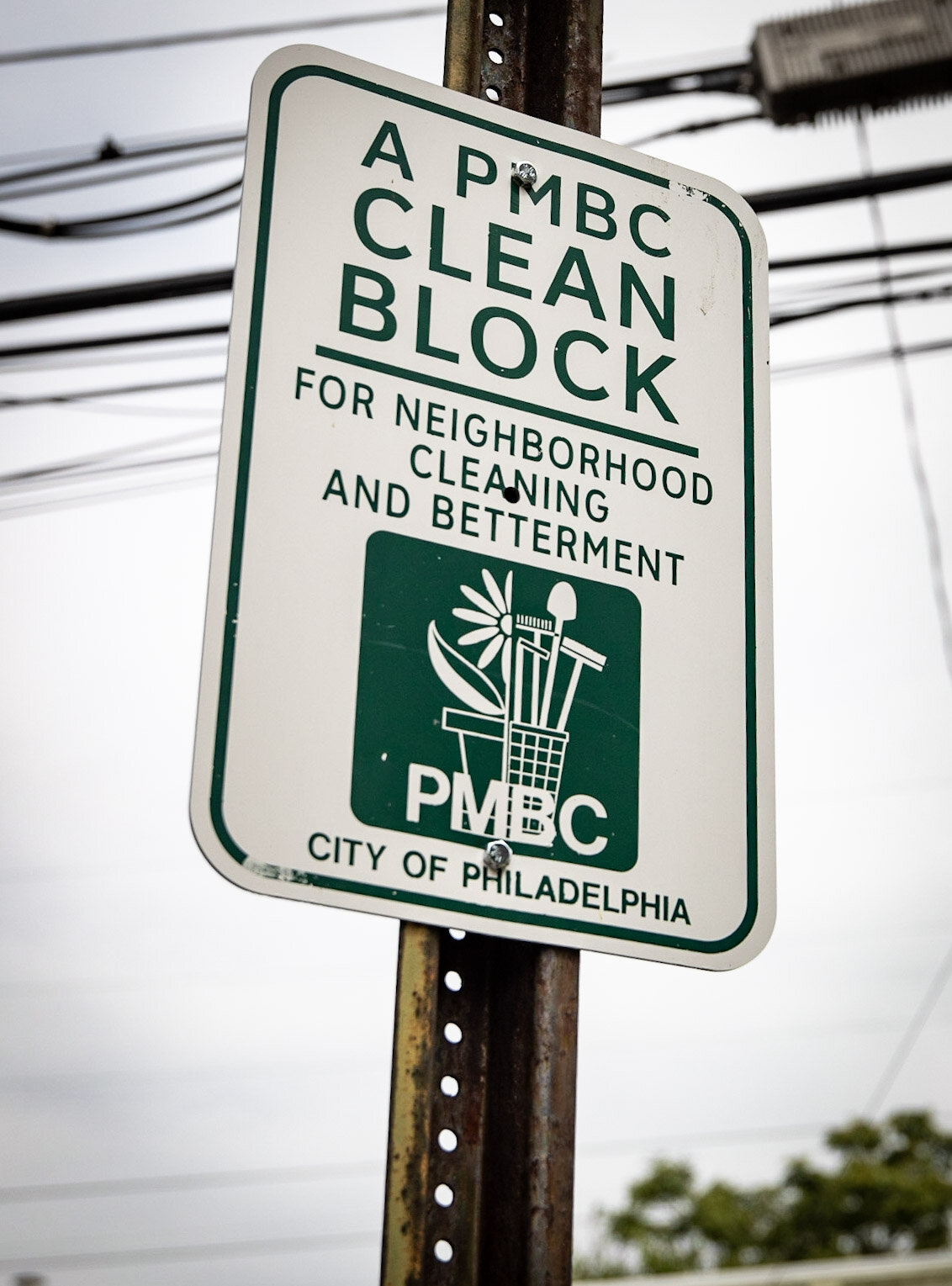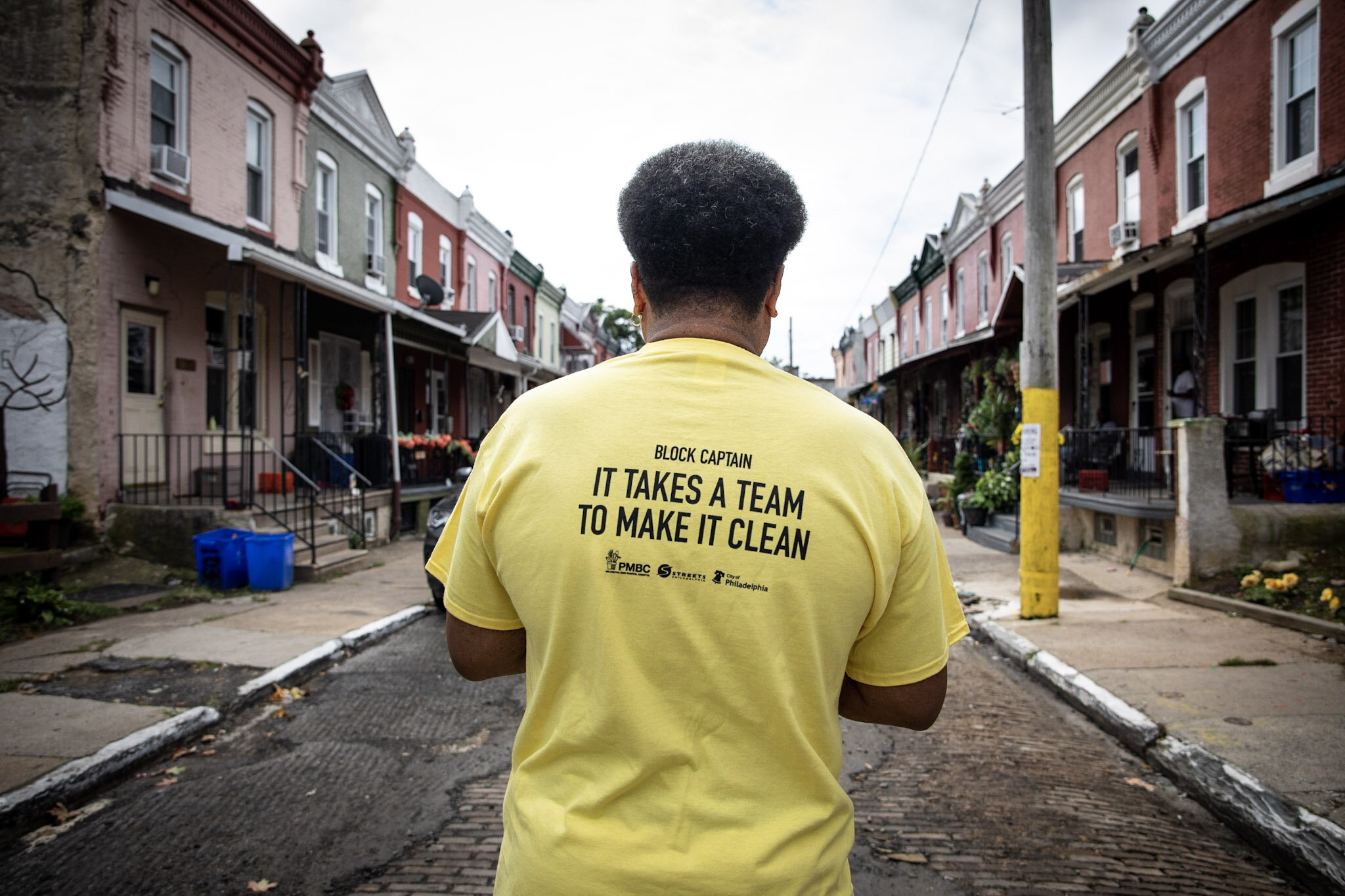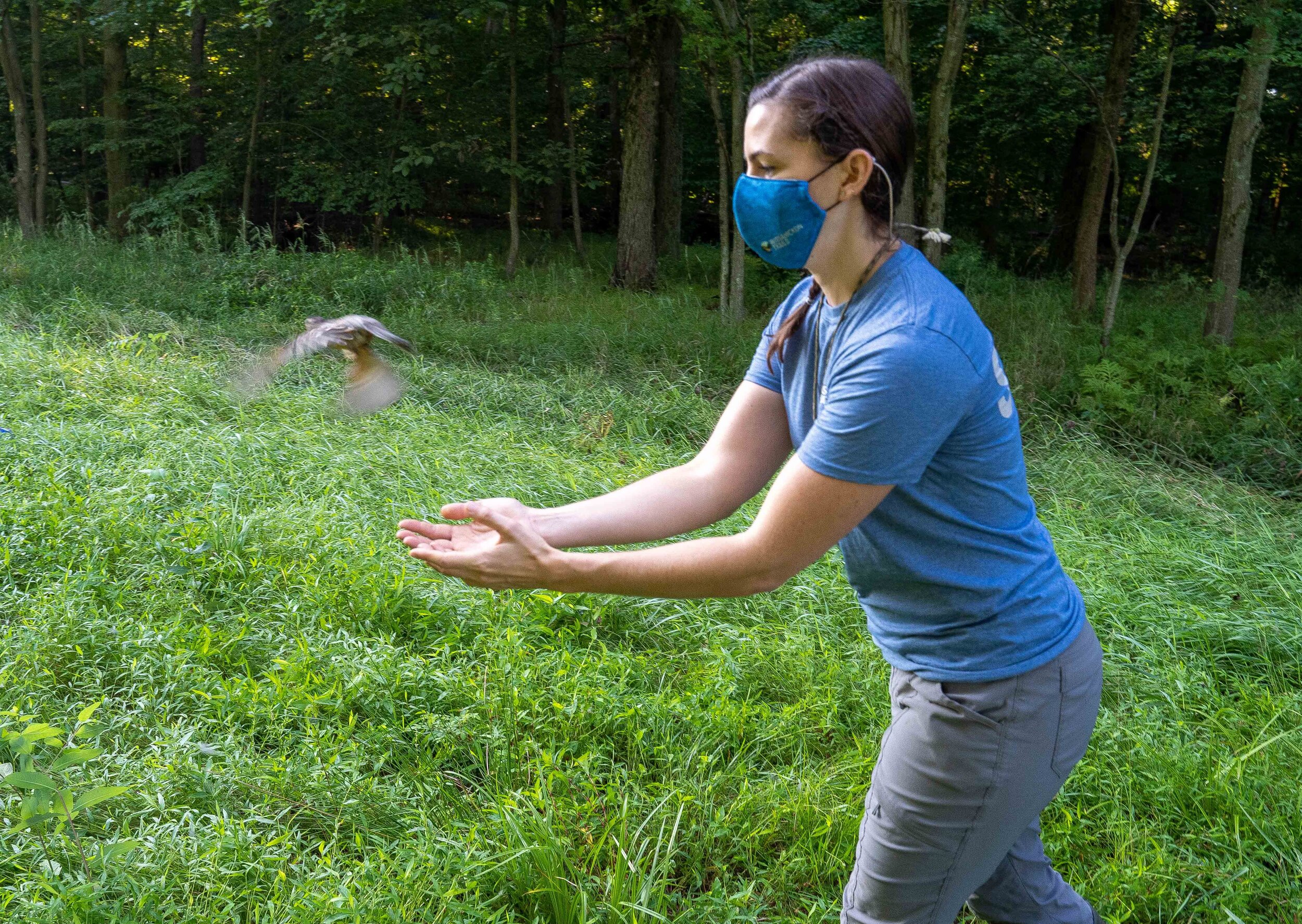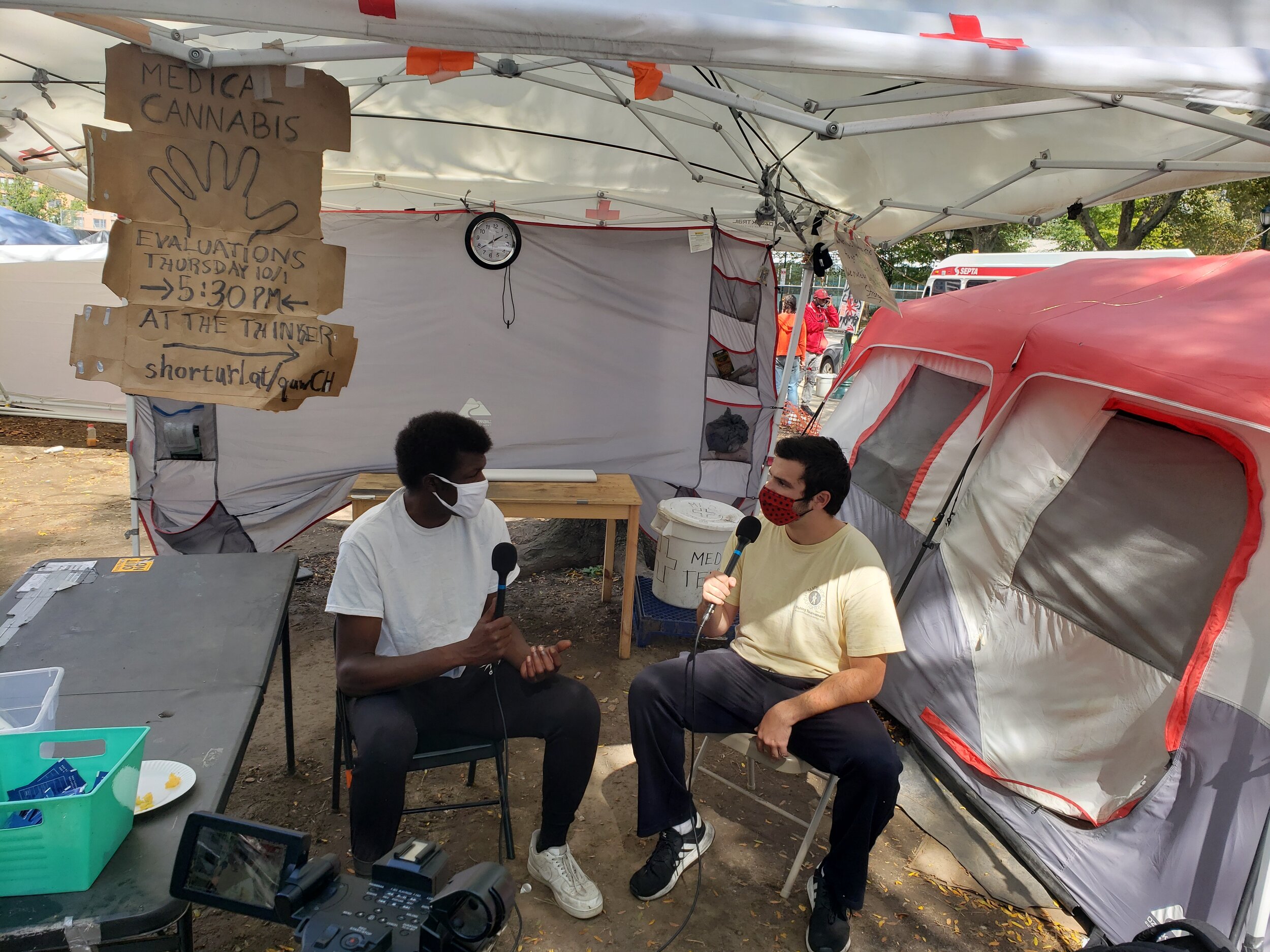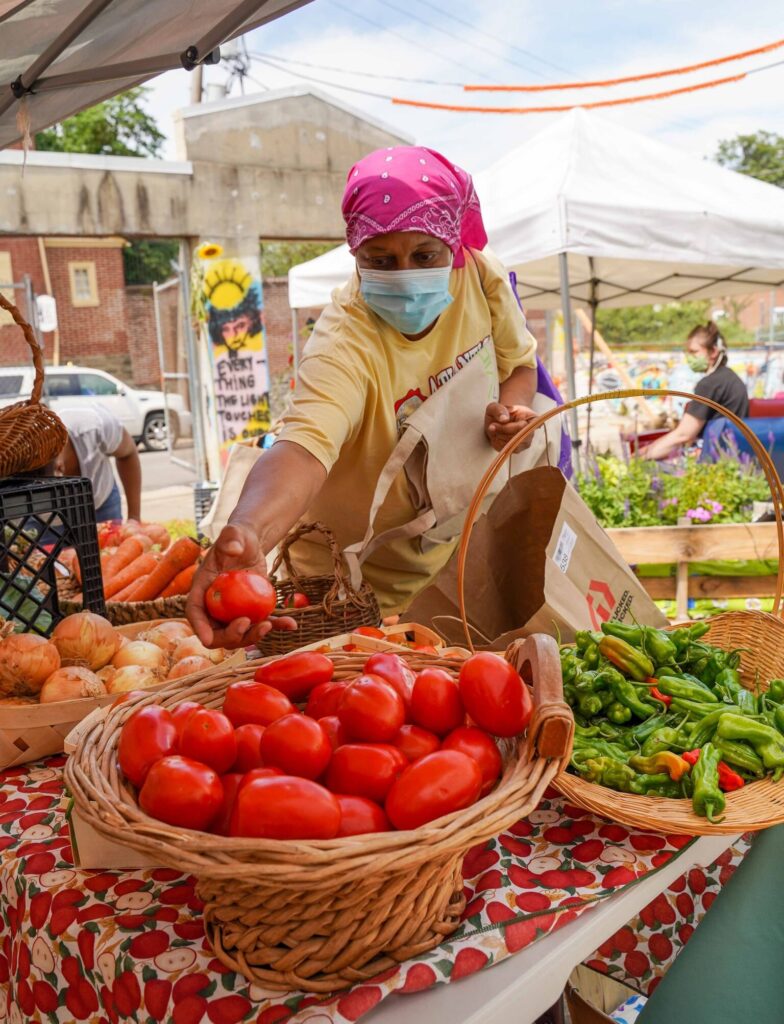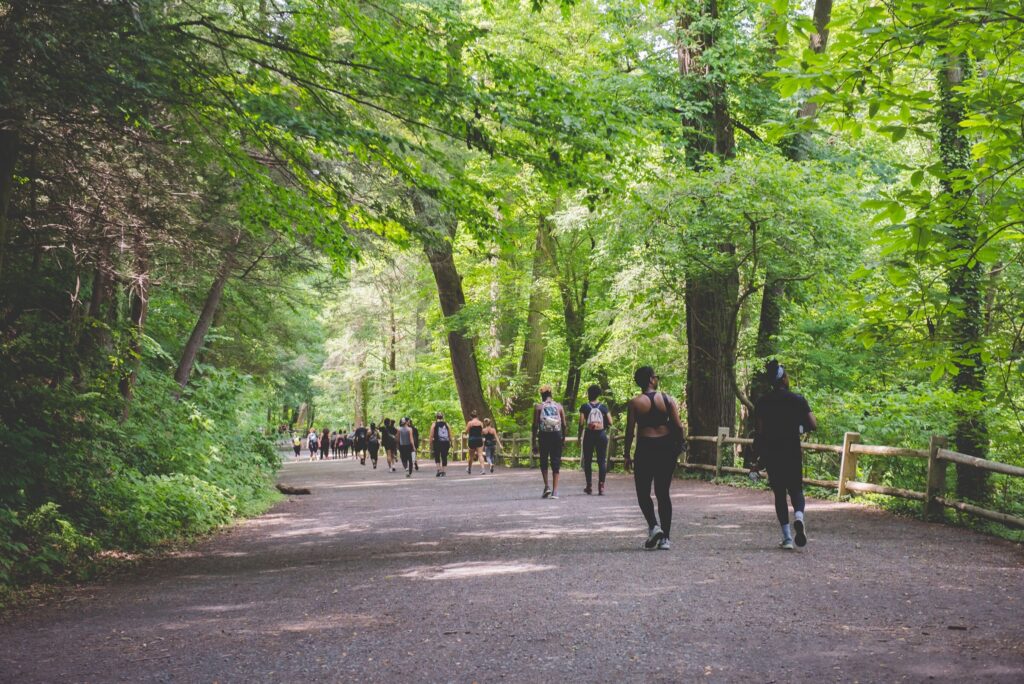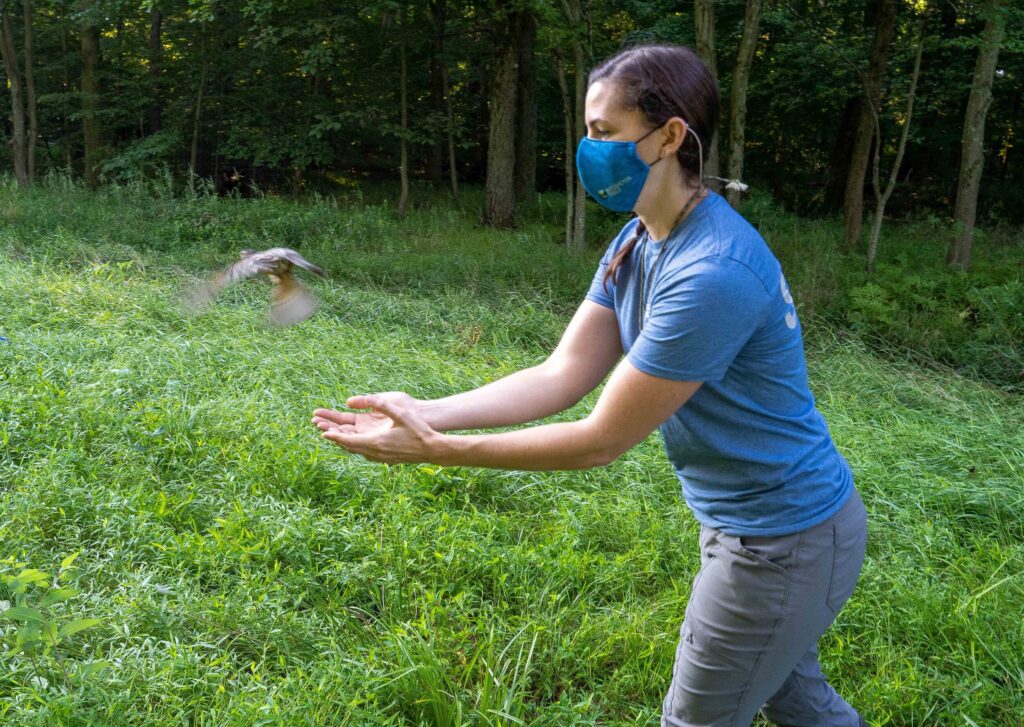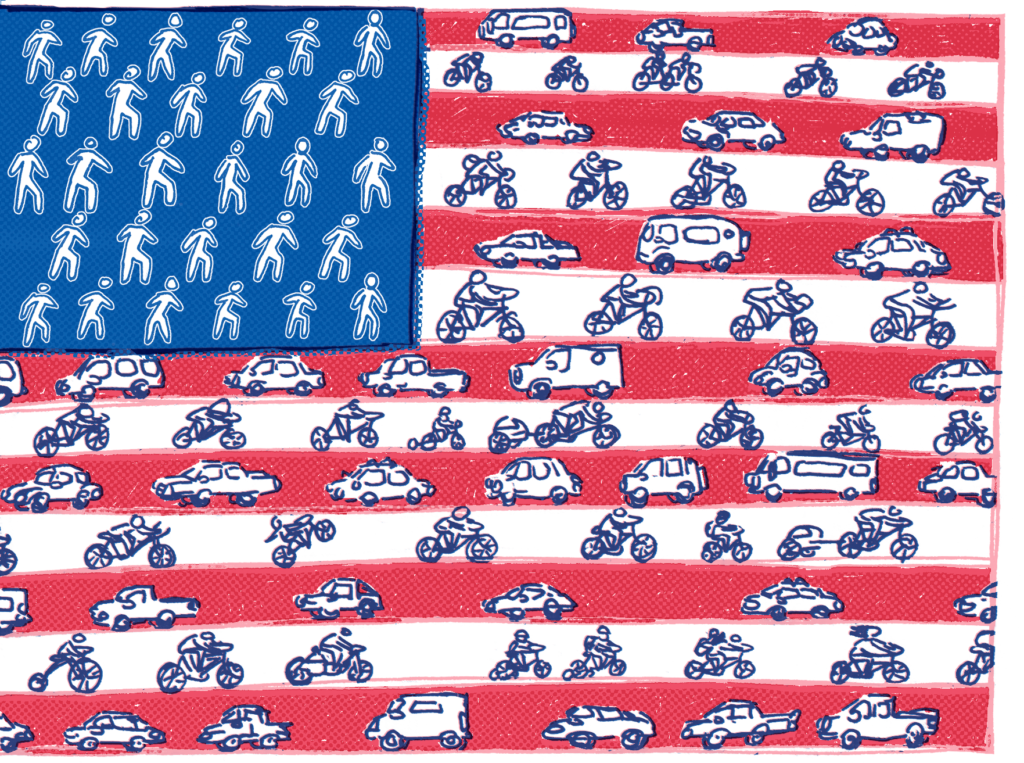Philadelphia’s quiet heroes include block captains, volunteers who, under the sponsorship of the Philadelphia More Beautiful Committee (PMBC)—a division of the Streets Department—rally their neighbors to keep their blocks attractive. Now, in addition to beauty, some block captains help ensure food and a sense of security for their neighbors in the face of the COVID-19 pandemic.
Many block captains are going the extra mile because of the current crisis, but they’ve enhanced the city for decades.
The story goes that in 1938, Sigrid Craig, aka Mrs. Philadelphia, saw a local woman throw garbage from her third-floor window into the yard below. Craig, resolute and sharp-tongued, was a volunteer for different causes. “[S]ince I’m not paid, I can be as nasty as I want, but I rarely have to be,” she reportedly said. Craig felt that Philadelphians could do better.
The campaign that Craig began, Clean-up, Paint-up, Fix-up, produced splendid results that she later showed to Dr. Martin Luther King Jr. when she accompanied him on a tour of the city in October 1966. By the mid ’60s, when Craig had recruited some 3,000 block captains, the Streets Department took over the program and renamed it the Philadelphia More Beautiful Committee.
“Now the program has more than 6,000 block captains, assisted by their neighbors, and 1,000 junior block captains between ages 7 and 17,” says Dawn Woods, administrator of PMBC.
“Block captains unite the neighborhood,” Woods says, suggesting that unity may matter more in these uncertain times.
“They organize residents to sweep the block, plant community gardens in vacant lots and install litter baskets, and they don’t get a dime for what they do,” she emphasizes. “PMBC supports the captains with supplies like bags, brooms, rakes and shovels. With the pandemic, block captains are welcome to continue getting supplies to clean their block, but PMBC guidelines have been modified to match city and state COVID-19 mandates, including wearing a mask and practicing social distancing.”
The pandemic can mean more work for block captains in different respects.
“Litter in the city has increased due to most people working from home and children not [being] in school,” Woods says. In addition, PMBC encourages block captains to consider young people’s nutrition. “We help block captains sign up for food for children provided by the Philadelphia Parks and Recreation Department through their Playstreets and Summer Food Service Programs.”
PMBC usually holds an annual contest to decide the city’s most beautiful block. About 25 to 30 blocks take part. “The winning block receives $1,000 to use for improvements,” Woods says. Any block organized for two years may participate, but PMBC has postponed this year’s competition because of the pandemic.
Often, captains devoted to their block’s beauty are longtime residents. Darnell Perry, 62, an employee at Lowe’s, has lived on the 1000 block of Pallas Street in West Philadelphia for 50 years. Perry and his wife, Alice, 63—who works at the Philadelphia Corporation for Aging—serve as joint captains. “We take … pride in our block,” she says. Their stretch of Pallas won first place in PMBC’s 2019 Clean Block Contest.
On their small, close-knit block, neighbors wear masks and continue to sweep the streets. Their chief concern now is the children. “Children play outside, and cars speed down the street,” says Alice. “We’re all working with the Streets Department to have the street repaved and speed bumps included to slow the cars.” She notes that the block has a lunch program for children.
Timothy Jones, 74, a retired aviation employee and assistant pastor of a local congregation, serves as the captain of three blocks—7800 Stenton Avenue, 900 East Hortter Street, and 900 East Phil Ellena Street—in Mount Airy.
“At one time I lived in the suburbs, but I moved here in 1975,” says Jones, also a police chaplain for the 14th District, a position in which he works with police during crises. “I felt I could be more effective as a pastor if I lived in the same conditions as the congregation. That’s what Jesus did.”
As a block captain, Jones strives to keep the blocks clean and ensure a good quality of life. “I see the fruits of my labor when we come together and cooperate on projects,” he says. “We recently worked together to have a faded street sign replaced.”
It’s not all hearts and flowers. “Some things, say, music that’s too loud, oppose the quality of life,” he says. “In that case, I talk with the leader of the group.” Sometimes dumpsters pose a problem. “You have to register them with the city,” he says, “and they remain only for a certain period of time. Otherwise, people throw garbage in them, and they begin to smell. I always talk with the people involved so they have a chance to remedy the situation, but if nothing happens, I call L & I [Department of Licenses and Inspections]. Some people won’t talk to me now,” he says, then chuckles, “but I still say hello to them.”
“Since COVID-19 began, I’ve made sure I have an updated email list of all the neighbors to communicate that way instead of calling meetings.
“Going forward, I’d like to see millennials more involved,” Jones says. “In some cases, a grandmother wills her house to a younger generation. I’d like them to realize that they’ve inherited a nice piece of real estate and really take care of it.”
Donnie Moore, 68, co-captain of the 1700 block of North 19th Street, retired from the Philadelphia Department of Prisons in 2010.“We cooperate to keep our block clean,” says Moore, of his North Philly block, just off Cecil B. Moore Avenue, that looks like a slice of suburbia. Moore became co-captain in 2015, the year the block won first place in the PMBC contest. “We worked together to win. We also cooperated to stop plans for a new school that would have destroyed green space and a playground.”
With his background working in the prison system, Moore sometimes turns to halfway houses for labor needed on the block. “The men work well,” he says, “we just have to feed them.”
Moore’s dedication gives block residents a sense of safety. “We have a nice block: a Vietnam vet, an attorney, college students, a SEPTA employee and a disabled woman,” says Janie Brooks, 58, Moore’s next-door neighbor, who emphasizes the need for more beautiful, affordable homes like those on her block. “Donnie keeps an eye on things, especially since the pandemic.”
The pandemic has motivated Moore to go all out. In the morning he spiffs up the block by discarding trash and sweeping, if necessary, then hops into his van to pick up 600 meals from The Real Deal Food Ministry, 2016 W. Berks Street, and other sites to deliver to senior citizen centers, homeless people and neighbors.
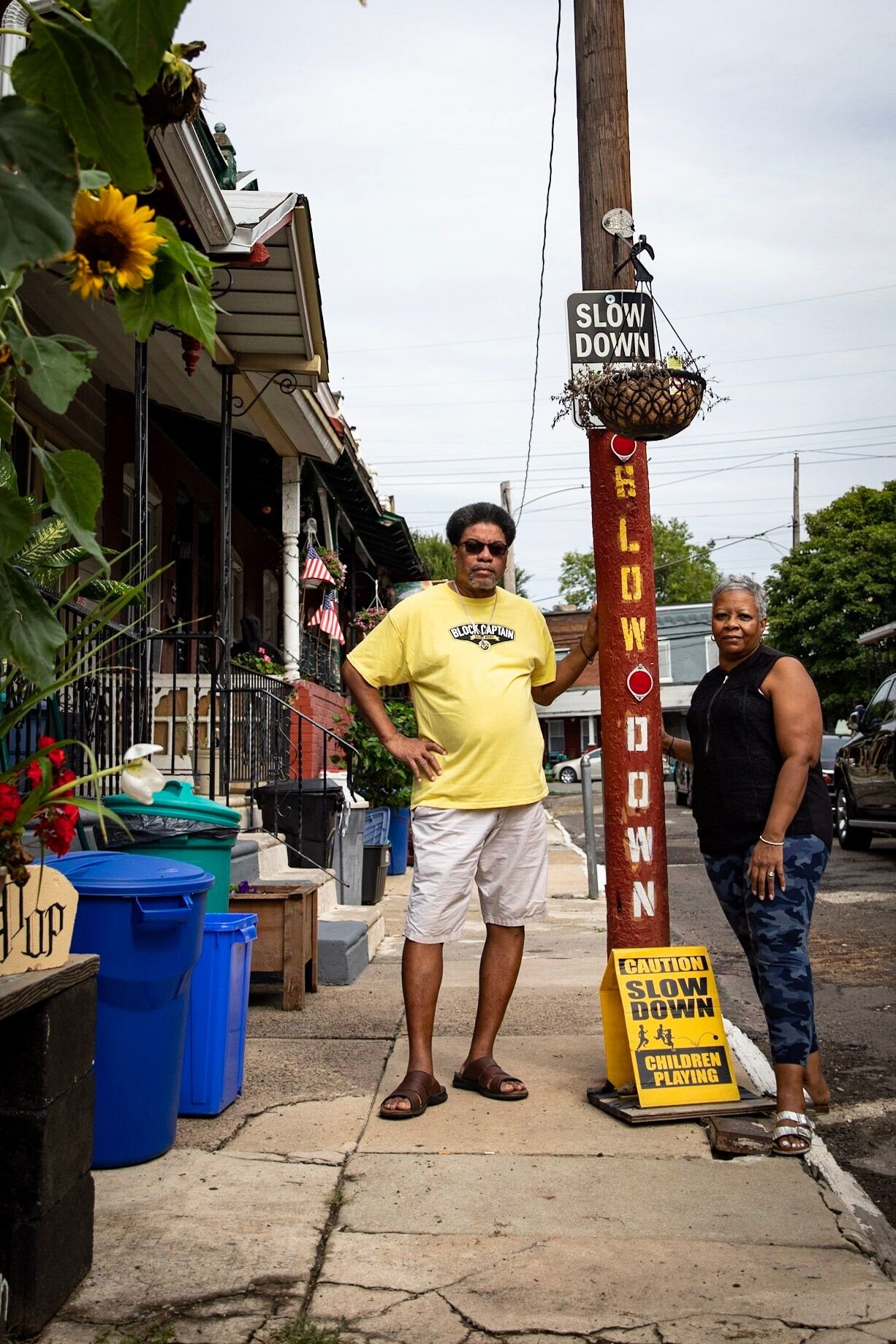
“People have been laid off because of COVID-19,” says Moore, whose block won first place in 2016, the year he began as co-captain. “Some people don’t have money for food. I distribute food five days a week and pay for my own gas. I’m not a clergyman, but you could call it my ministry.”
To learn more about becoming a block captain, visit philadelphiastreets.com/pmbc or call (215) 685-3981.



